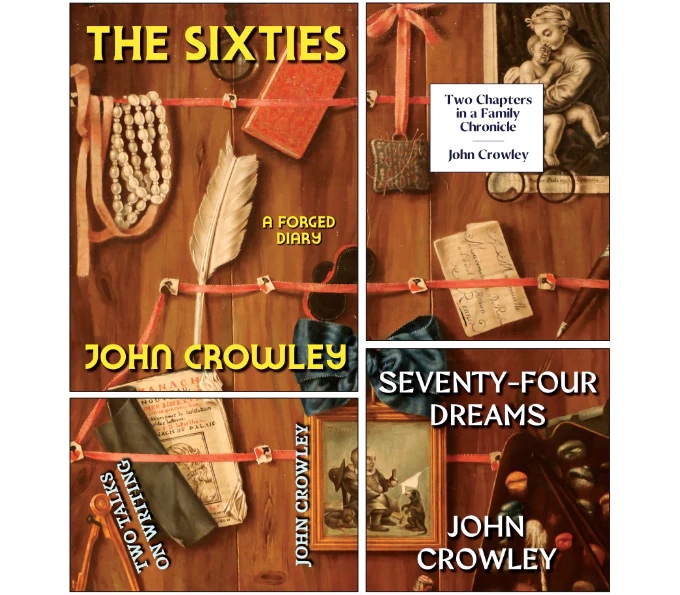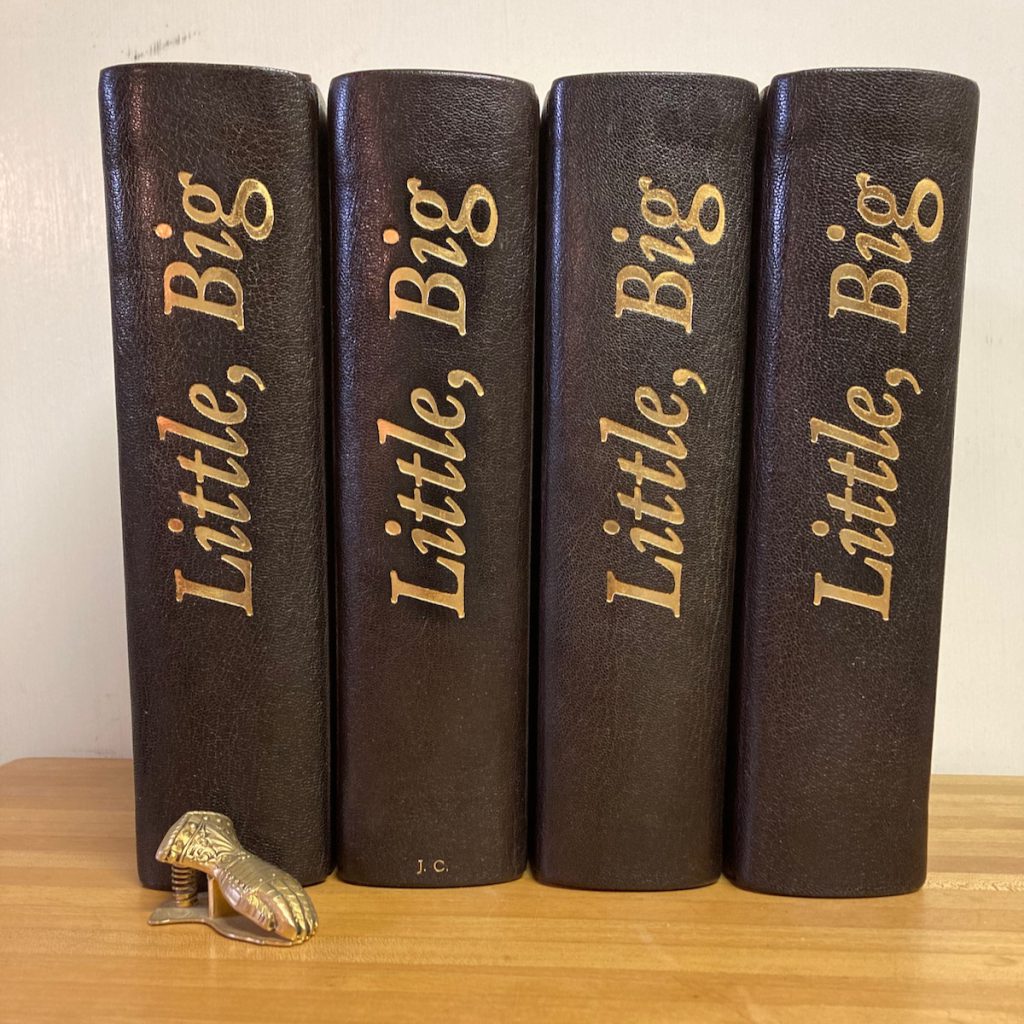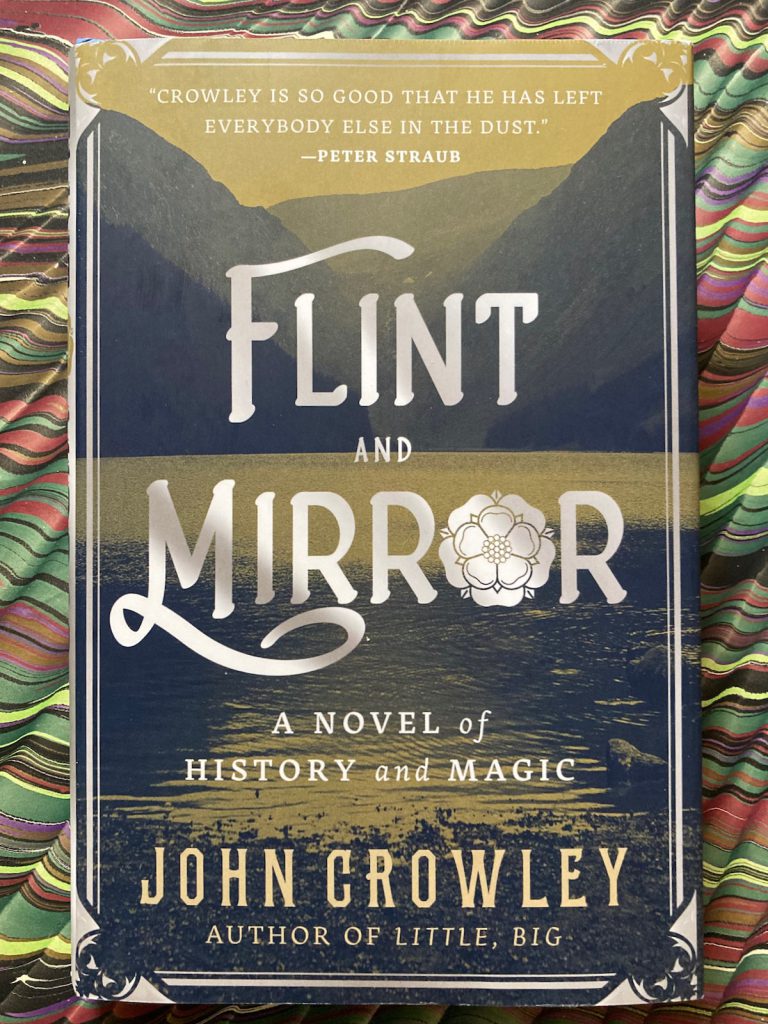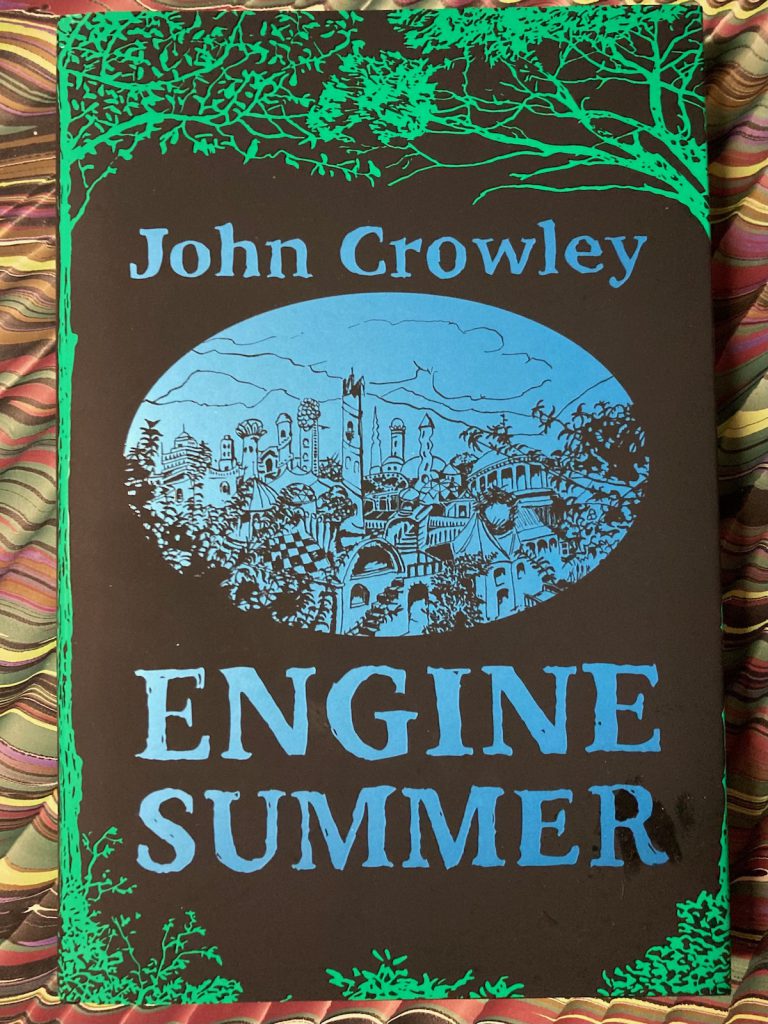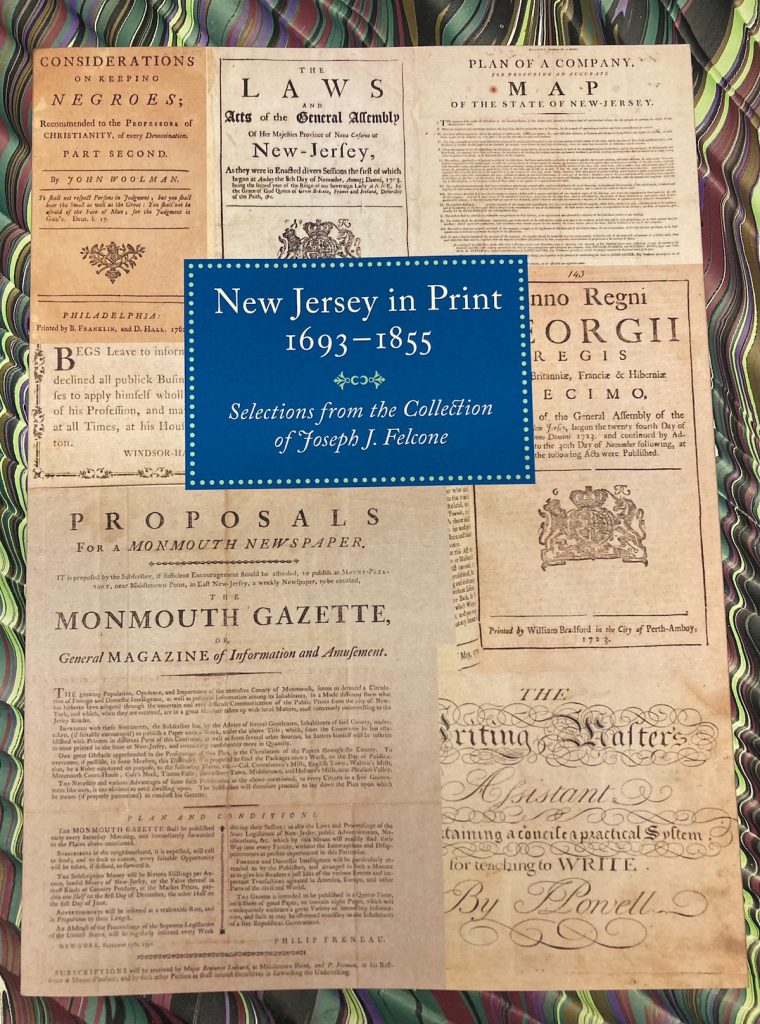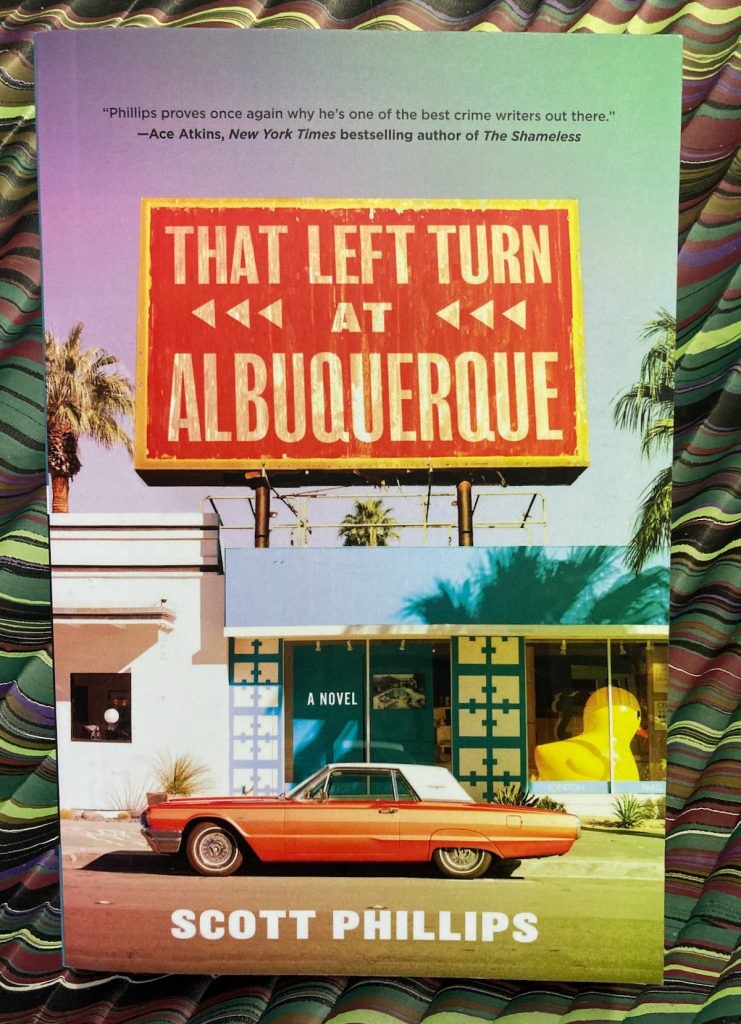special issue on re-reading : part one
Little, Big
When I take up a work that I have read before (the oftener the better) I know what I have to expect. The satisfaction is not lessened by being anticipated. [. . .] In reading a book which is an old favourite with me (say the first novel I ever read) I not only have the pleasure of imagination and of a critical relish of the work, but the pleasures of memory added to it. It recalls the same feelings and associations which I had in first reading it, and which I can never have again in any other way. Standard productions of this kind are links in the chain of our conscious being. They bind together the different scattered divisions of our personal identity. They are land-marks and guides in our journey through life.
— On Reading Old Books, from the Selected Essays of William Hazlitt 1778 : 1830. Edited by Geoffrey Keynes. Nonesuch, 1930.
John Crowley’s Little, Big is a book which I have read more times than I can count. It is also in that rare category of books which I give away (sometimes even the copy in my hand). Readers of the Endless Bookshelf will have seen allusions to my readings over the years (Appraisal at Edgewood, the summer of 2007, or Chapter XIV in A Conversation larger than the Universe or “Strange Enough to Be Remembered Forever”). Everything which Hazlitt enumerates applies to re-readings of Little, Big. This year, when I picked up the novel, I paid attention to recurrences of words and parallels. I don’t say repetitions or doublings because the words often function — that is to say, carry meaning — in a new way when they return to the surface later in the book.
Contradictions across scale run through the book * : rooms which seem larger than they are, or are smaller than they look — when Smoky is visiting the Woods (88), and Room 001 to which Sylvie delivers the package (331) — and the resonant phrase, the further in you go, the bigger it gets, is recited by Doctor Bramble in his lecture (43), by Hannah Noon at the wedding of Smoky and Alice (63), and by Auberon in the city park (351), with many echoes. “Daily Alice couldn’t tell if she felt huge or small. She wondered whether her head were so big as to be able to contain all this starry universe, or whether the universe were so little that it would fit within the compass of her human head” (178).
John Drinkwater told Violet, “I proved that every room needed more than two doors, but couldn’t ever prove than any could get along with only three” (50), which is a succinct an organizing principle of periodic recurrence as one could ask for. Take three examples. First: Smoky writes Alice that he has discovered a plaque reading Mouse Drinkwater Stone 1900 on a pillar at the entrance to a park (13) and a generation later Auberon begins brushing new leaving ivy and obscuring dirt from the plaque as Ariel Hawksquill holds a key to the gate (350). And second: the word constellation, invoked when Smoky is on his way to Edgewood (21), in the beautiful passage when Smoky and Alice and Sophie are looking at the stars on the last night of summer (177-8), and as Ariel Hawskquill contemplates the night-time paradox of the Cosmo-Opticon, when “the blackish Zodiac and the constellations could not be read” (343). And in between “Jolly, round, red Mr. Sun” who rises as a schoolboy reads from one of Doc’s fables of the Green Meadow in Smoky’s classroom (128) and the “ghastly red round sun” as it sinks late one afternoon when Mrs. Underhill takes Lilac on a tour of New York and Old Law Farm (312) are the lives of individual characters and the fate of afflicted nation under the Tyrant. In George Mouse’s successive awakenings from the effects of a “new drug he was experimenting with, of astonishing, just unheard-of potency” (500), familiar objects reassemble themselves into another fabric of reality. These recurrences in Little, Big are the Tale itself, inseparable now from the experience of the reader.
Little, Big is a source of great pleasure each time I read it. This pleasure is only increased by reading about the novel, in, for example, John Clute’s review in the Washington Post Book World for 4 October 1981, or Snake’s Hands, edited by Michael Andre-Driussi and Alice Turner (which prints, twenty years later, Tom Disch’s contemporary review of Crowley’s “masterpiece”).
* citations refer to page numbers in the Bantam edition.
— — —
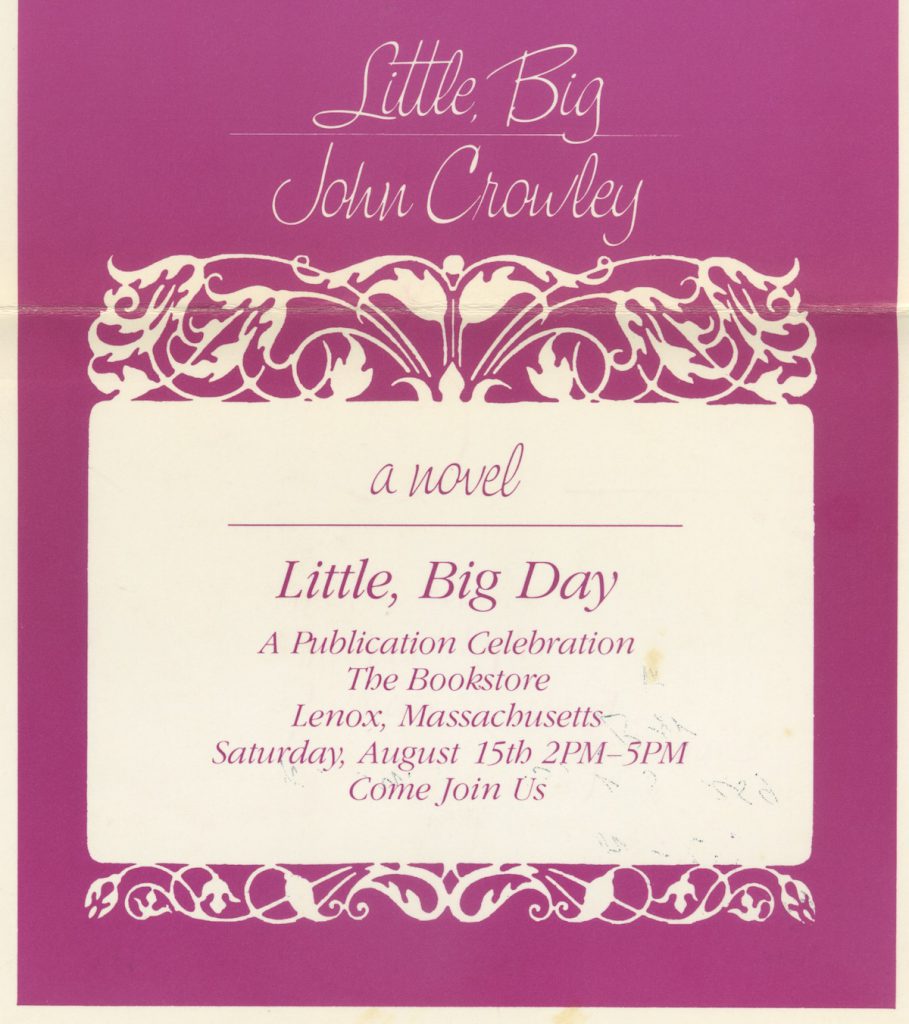
Little, Big was published on 16 September 1981. Above, detail from an invitation to Little, Big Day in August 1981. And below, the author’s inscriptions to Thomas M. Disch in copies of the novel :
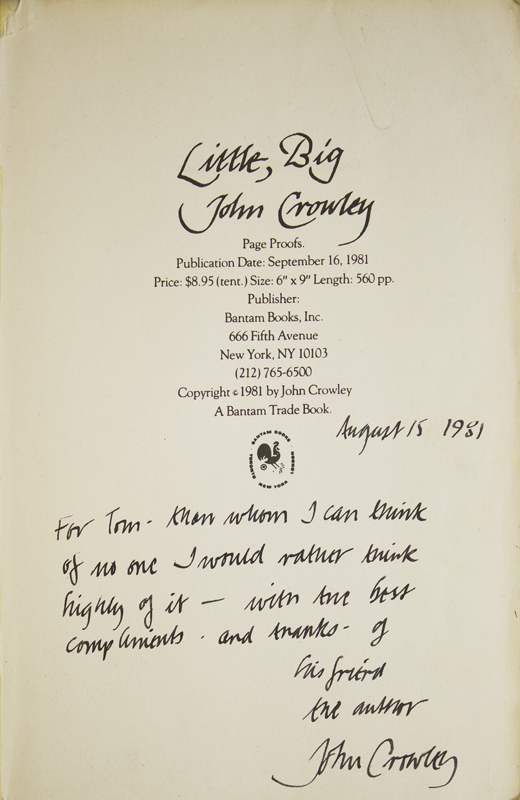
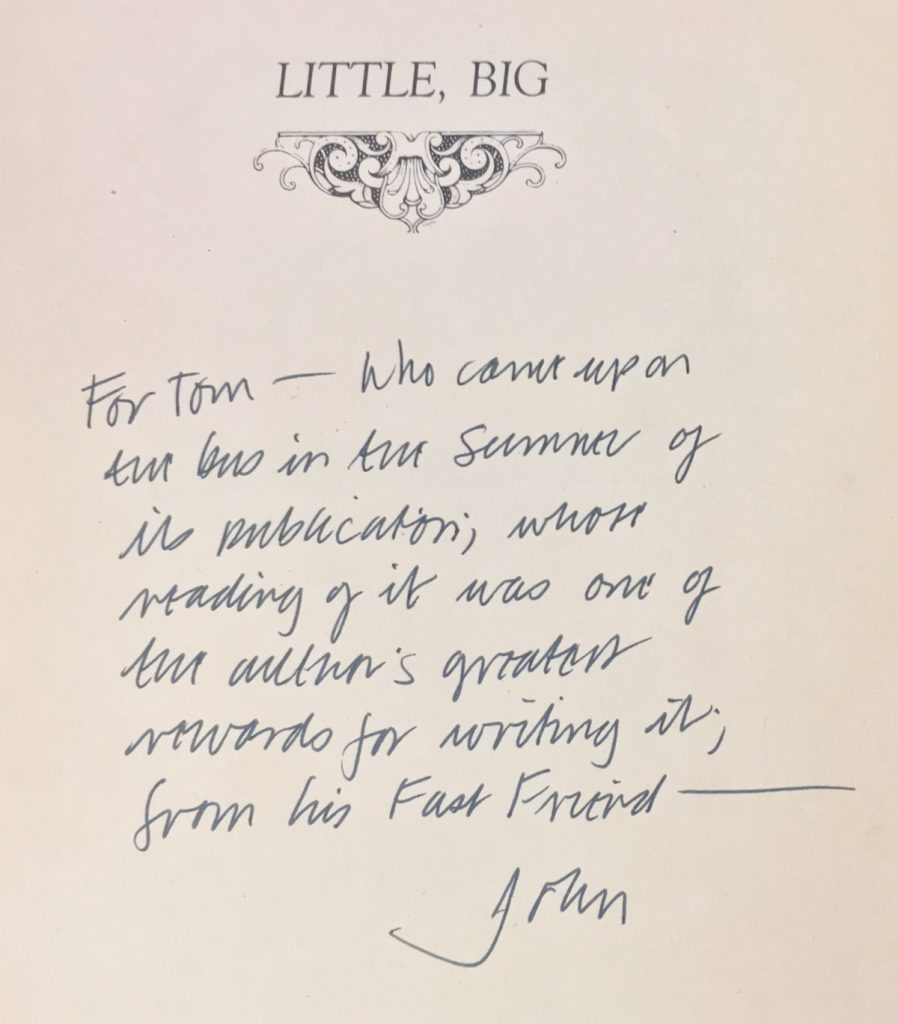
The Bantam trade edition (1981) :
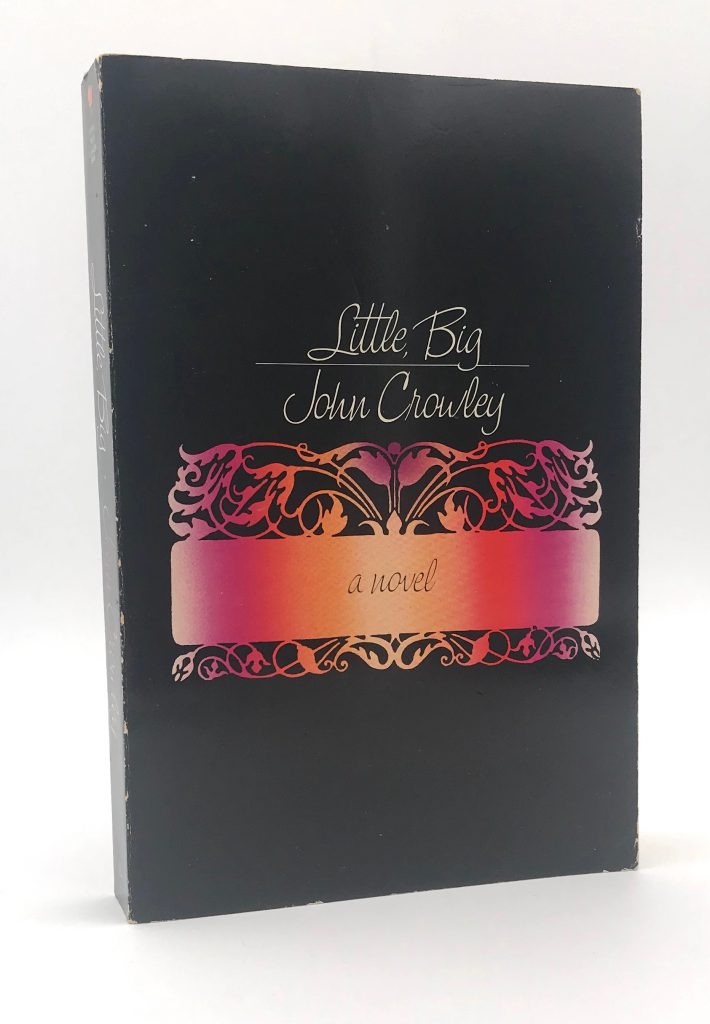
the Gollancz hardcover edition (1982) :
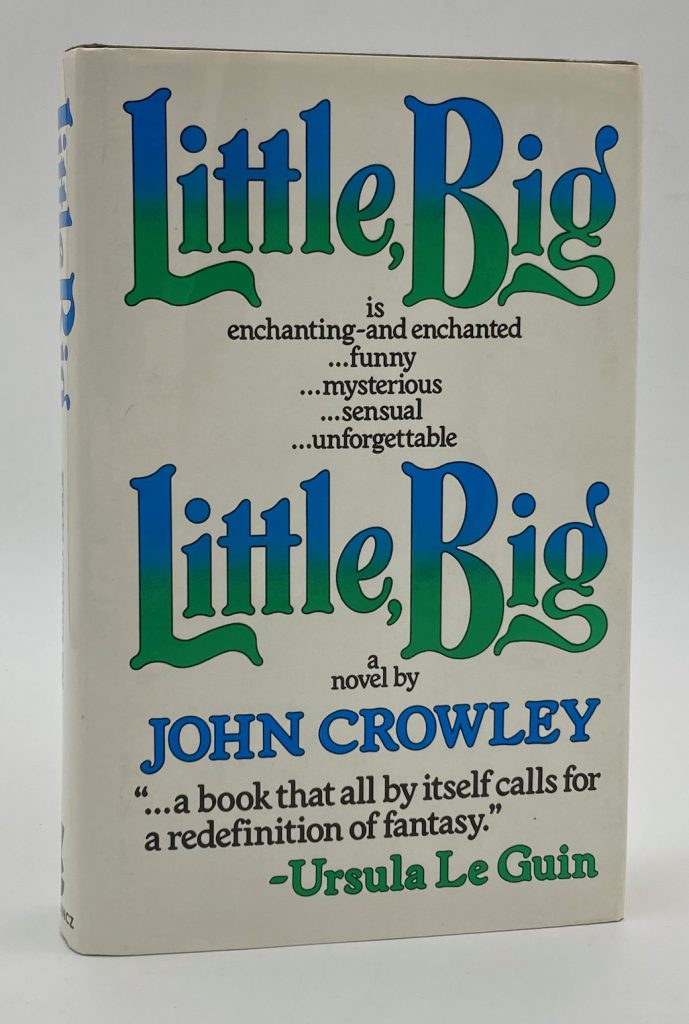
and the recent Gollancz Fantasy Masterworks edition (2015) with a fine, concise introduction by Graham Sleight :
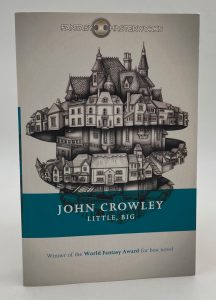
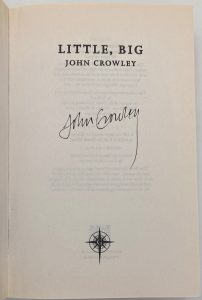
In truth, with certain books, there are any number of reasons to have more than one copy. Little, Big is one of those personal “land-marks” (as Hazlitt calls them). To quote Tom Disch :
It’s readers who make a book a classic by reading it and getting their friend to read it, by treasuring it and making its wisdom part of their own. Little, Big deserves to be that kind of book.
So read it.
[HWW]
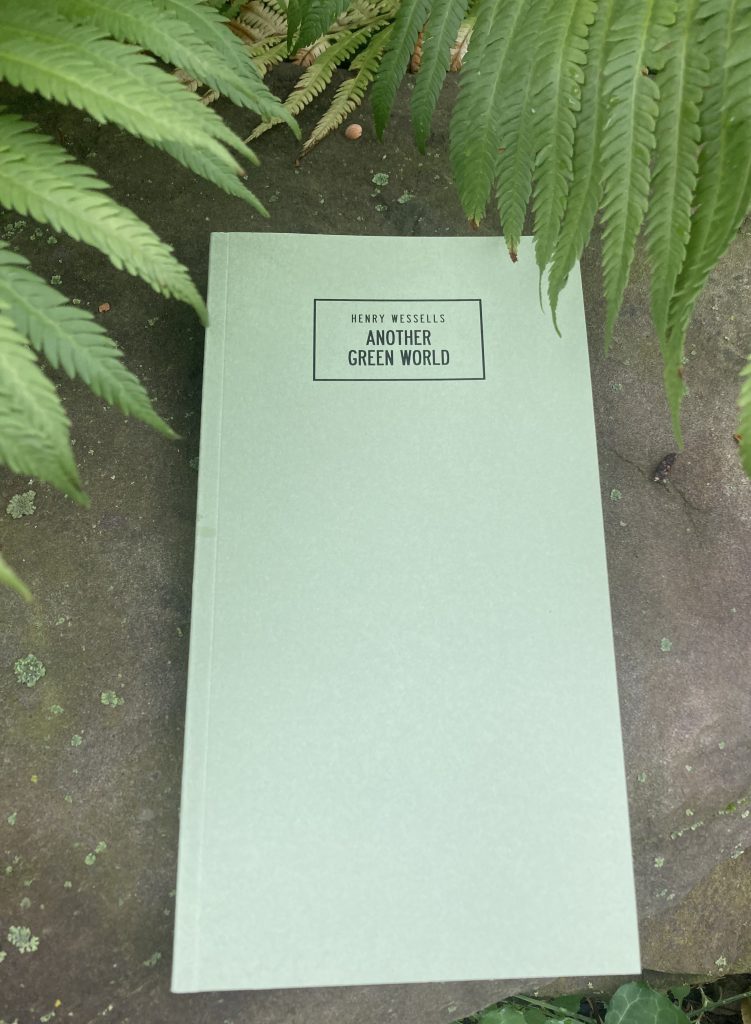

 It feels like the end of summer here in Montclair, with the hop cones turning, and the tables at the farmers’ market asprawl with the last of the bulbous heirloom tomatoes and an abundance of pawpaws. And some interesting books in the the mail recently :
It feels like the end of summer here in Montclair, with the hop cones turning, and the tables at the farmers’ market asprawl with the last of the bulbous heirloom tomatoes and an abundance of pawpaws. And some interesting books in the the mail recently :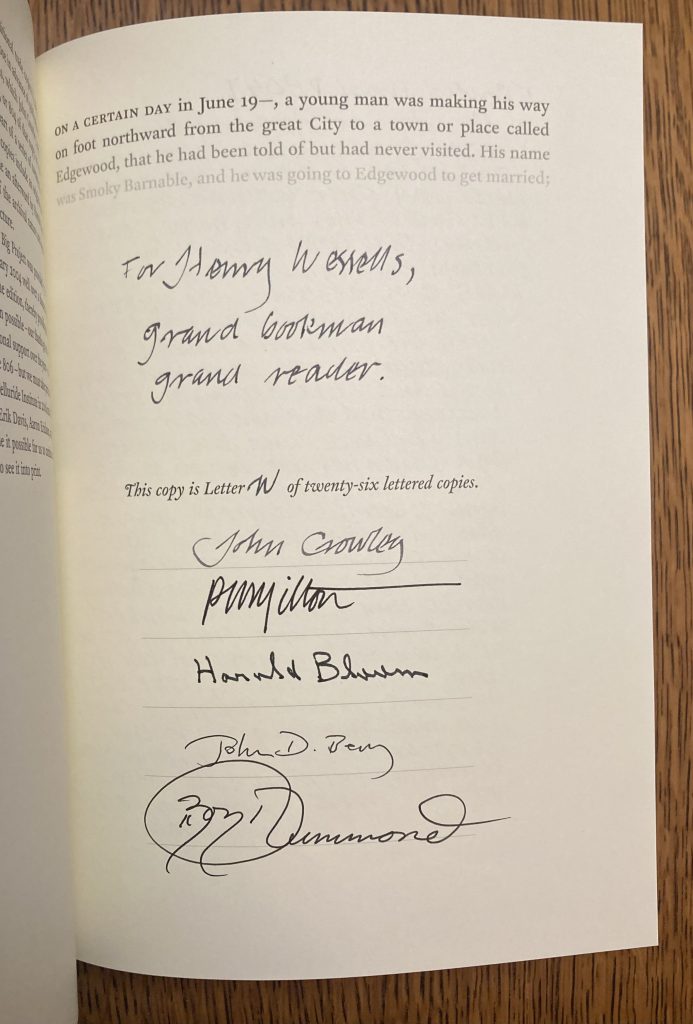
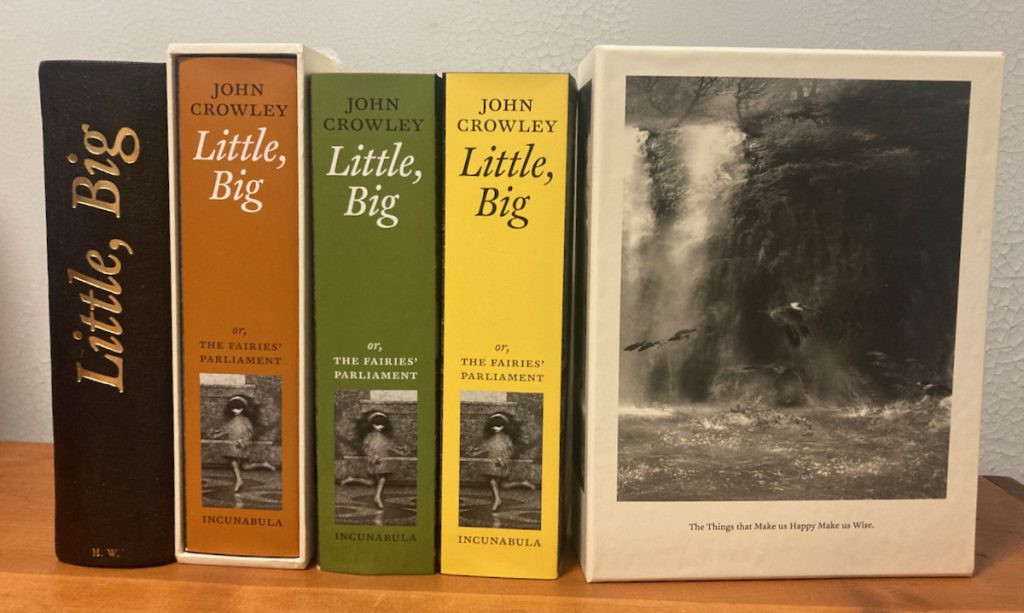
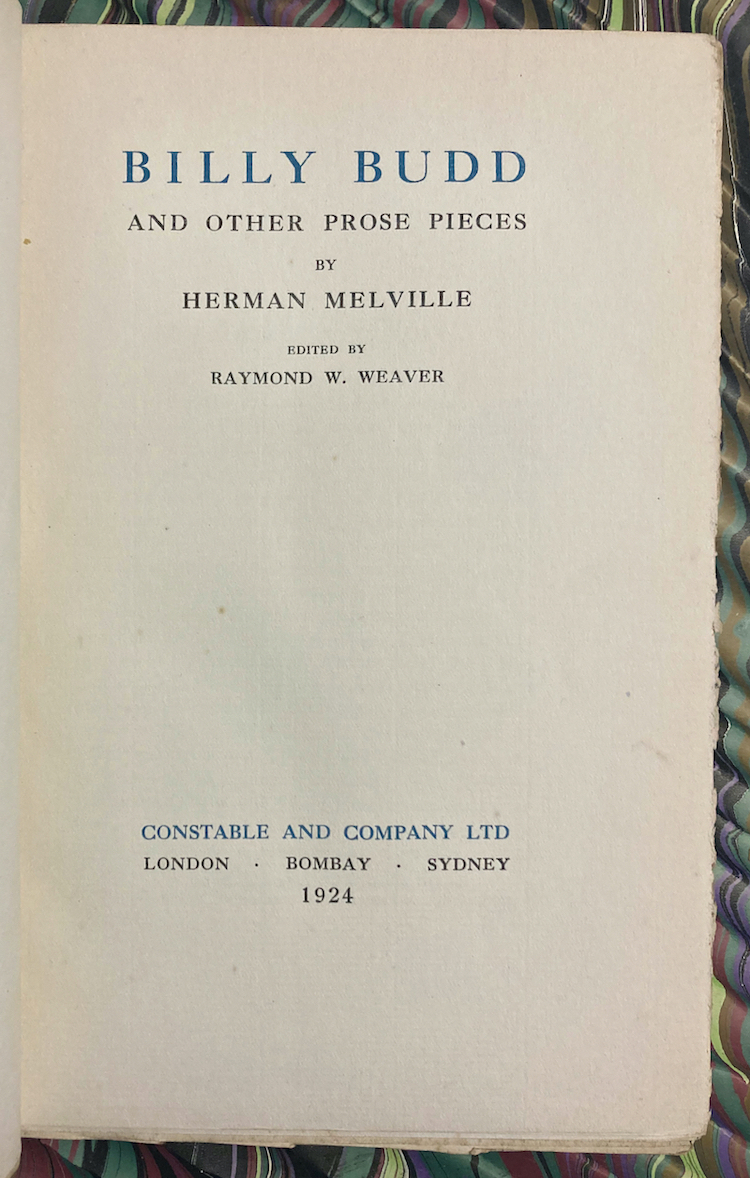 — Herman Melville. Billy Budd and Other Prose Pieces. Constable, 1924. This was Melville’s last book, unpublished at the time of his death and closely connected to his book of verse, John Marr and other sailors (1888). Billy Budd grew out of a note to “
— Herman Melville. Billy Budd and Other Prose Pieces. Constable, 1924. This was Melville’s last book, unpublished at the time of his death and closely connected to his book of verse, John Marr and other sailors (1888). Billy Budd grew out of a note to “